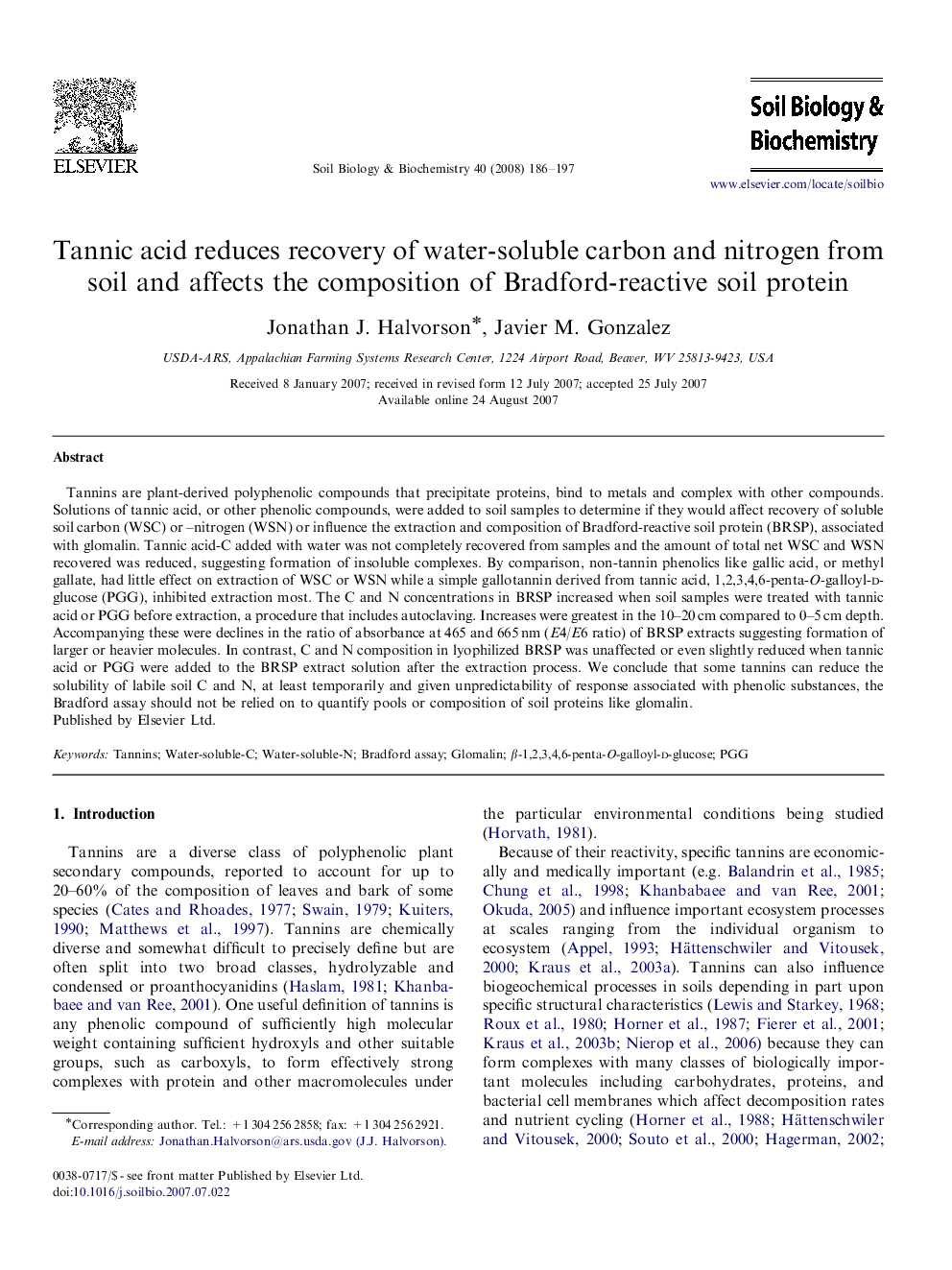| Article ID | Journal | Published Year | Pages | File Type |
|---|---|---|---|---|
| 2025490 | Soil Biology and Biochemistry | 2008 | 12 Pages |
Tannins are plant-derived polyphenolic compounds that precipitate proteins, bind to metals and complex with other compounds. Solutions of tannic acid, or other phenolic compounds, were added to soil samples to determine if they would affect recovery of soluble soil carbon (WSC) or –nitrogen (WSN) or influence the extraction and composition of Bradford-reactive soil protein (BRSP), associated with glomalin. Tannic acid-C added with water was not completely recovered from samples and the amount of total net WSC and WSN recovered was reduced, suggesting formation of insoluble complexes. By comparison, non-tannin phenolics like gallic acid, or methyl gallate, had little effect on extraction of WSC or WSN while a simple gallotannin derived from tannic acid, 1,2,3,4,6-penta-O-galloyl-d-glucose (PGG), inhibited extraction most. The C and N concentrations in BRSP increased when soil samples were treated with tannic acid or PGG before extraction, a procedure that includes autoclaving. Increases were greatest in the 10–20 cm compared to 0–5 cm depth. Accompanying these were declines in the ratio of absorbance at 465 and 665 nm (E4/E6 ratio) of BRSP extracts suggesting formation of larger or heavier molecules. In contrast, C and N composition in lyophilized BRSP was unaffected or even slightly reduced when tannic acid or PGG were added to the BRSP extract solution after the extraction process. We conclude that some tannins can reduce the solubility of labile soil C and N, at least temporarily and given unpredictability of response associated with phenolic substances, the Bradford assay should not be relied on to quantify pools or composition of soil proteins like glomalin.
